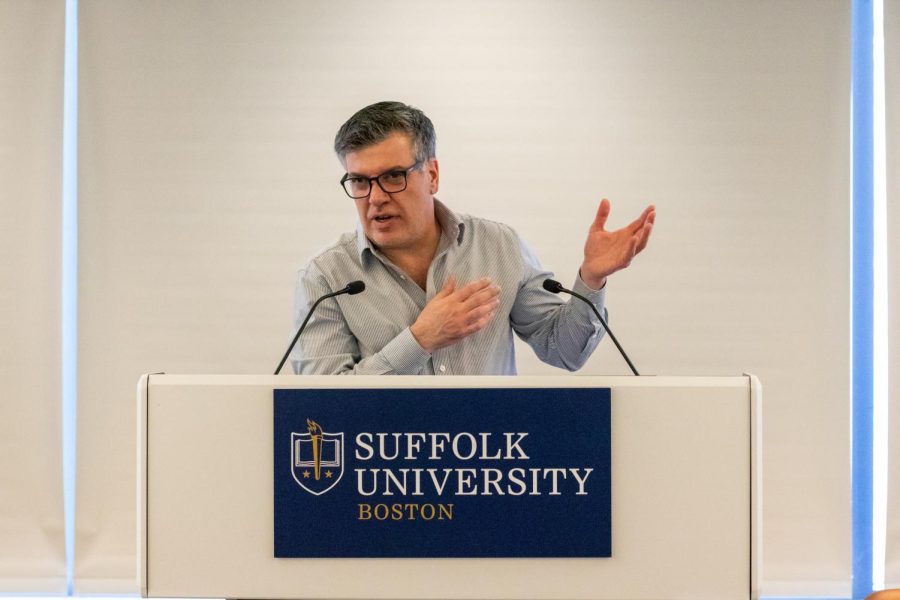The UN Climate Change Conference has been eventful since its start on Oct. 21 in Glasgow. While each country has pledged specific goals for themselves, they are all working together to mitigate climate change for everyone on the planet.
In the Global Forest Finance Pledge, 12 countries including the United States pledged $12 billion to protect, restore and sustainably manage forests, according to documents posted on the COP26 website. This will help to sequester carbon in the atmosphere, and heal landscapes that have been destroyed by the logging industry.
Over 90% of the world’s forests will be protected by the Glasgow Leaders’ Declaration on Forests and Land Use. In the report, the countries pledged to “commit to working collectively to halt and reverse forest loss and land degradation by 2030 while delivering sustainable development and promoting an inclusive rural transformation.”
According to their website, the Forest Agriculture and Commodity Trade initiative is “bringing together the largest producers and consumers of internationally traded agricultural commodities, such as palm oil, soya, cocoa, beef and timber, in order to protect forests and other ecosystems while promoting trade and development.” This dialogue is intensely complicated, as it merges multiple industries under one goal.
The United States and the United Kingdom agreed in the US-UK Strategic Energy Dialogue to “prioritise the global transition to net zero emissions.” The dialogue aims to improve relationships between countries to enhance clean energy technologies, decreasing carbon use in industry, nuclear energy technology and the security of energy for the future.
Infrastructure has proved to be a keynote topic in these discussions. President Biden, European Commission President von der Leyen and UK Prime Minister Johnson hosted a discussion with other world leaders to discuss how “Build Back Better World, Global Gateway and Clean Green Initiatives will jumpstart investment, sharpen focus and mobilize resources to meet critical infrastructure needs to support economic growth, while ensuring that this infrastructure is clean, resilient and consistent with a net-zero future.”
Johnson pledged on Nov. 2 that the Breakthrough Agenda will provide clean and affordable technology globally by 2030. The developments to the world’s economy will provide new jobs and stimulate the global economy, while simultaneously reducing emissions in some of the most pollutant-heavy sectors.
On Nov. 1, Johnson announced the Clean Green Initiative, supporting the “rollout of sustainable infrastructure and revolutionary green technology in developing countries, helping to tackle climate change and boost economic growth,” according to the initiative.
To help support South Africa’s efforts to reduce its carbon footprint, France, Germany, the UK, the US and the EU established the International Just Energy Transition Partnership. Within this partnership, the economic support will help the country move away from coal dependency and to lower emissions. Another press release announced up to $2 billion to help African nations absorb climate change shocks. In a third article, the UK announced it will pledge £50 million ($67 million) to countries in the Middle East and North Africa to fund their green energy transition.
A statement released on Nov. 3 discussed how 23 countries will phase out coal power. The countries pledged to “end all investment in new coal power generation domestically and internationally, rapidly scale up deployment of clean power generation, phase out coal power in the 2030s for major economies and 2040s for the rest of the world, and make a just transition away from coal power in a way that benefits workers and communities,” according to the statement.
The UK, in partnership with Pakistan, is promising over £55 million ($75 million) to help combat water scarcity and equality in the 8th most vulnerable country to climate change, according to a Nov. 4 press release.
The importance of climate change is being encouraged in the educational sector, as UK Secretary of Education Nadhim Zahawi rolled out a plan to support teachers in delivering “world-leading climate change education through a model science curriculum, which will be in place by 2023, to teach children about nature and their impact on the world around them,” the plan said.












